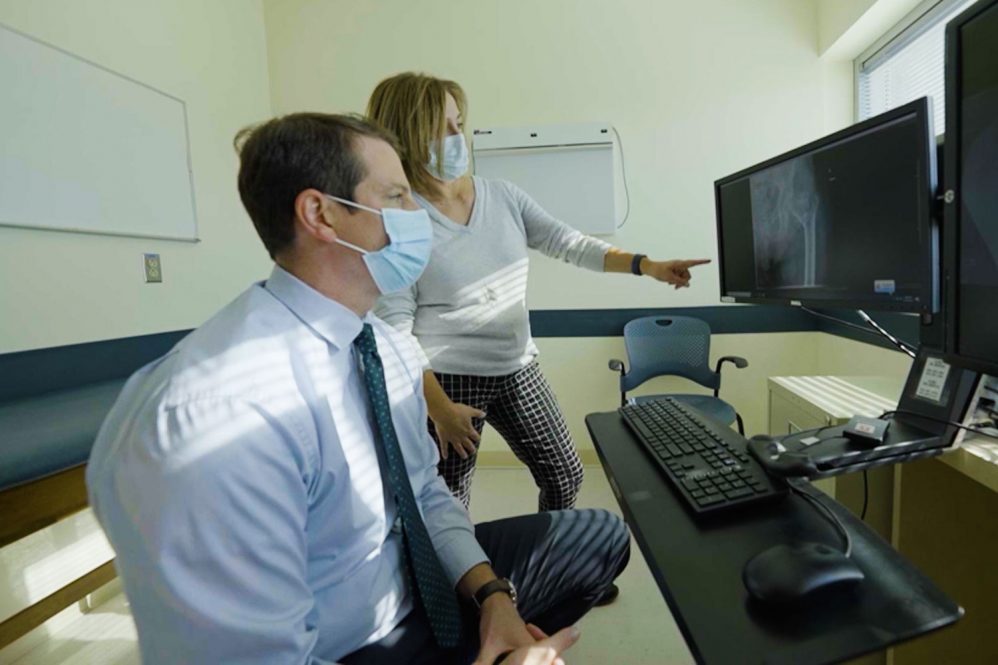Fragility fractures, or broken bones that follow low-energy injuries such as falls, become more of a problem as we age, particularly for women.
And it can get worse: Patients who’ve suffered a fragility fracture are at least twice as likely to experience another.
It’s why UConn Health has a multidisciplinary fracture liaison service, led by Dr. Adam Lindsay, an orthopedic surgeon, and Jill Arcari-Couture, an orthopedic nurse practitioner, in tandem with Dr. Faryal Mirza, an endocrinologist, and endocrinology nurse practitioners Alicja Jedrychowski and Beata McAuliffe.
“What that includes is prompt identification of the fracture, prompt admission to the hospital, a multidisciplinary care team in the hospital, a quick trip to the operating room to get the fracture fixed, and then a discharge to a rehab facility,” Lindsay says. “And then on the outpatient side, we’ve developed a dedicated clinic for osteoporosis-related fractures and fragility fractures, where we see patients back, we ensure that they’re recovering appropriately, that they’re getting the appropriate rehab, that their fractures are healing, and also, importantly, that we’re working to prevent future fractures.”
The American Orthopaedic Association estimates 53 million Americans have osteoporosis or are at high risk because of low bone density, and expects that number to rise significantly as the population ages. A fragility fracture is a serious complication associated with osteoporosis and is often the first sign of the disease. Oct. 20 is World Osteoporosis Day.
“About 50% of all women and 25% of men over the age of 50 will have a fragility fracture, often the result of osteoporosis, or thinning of the bone,” Arcari-Couture says. “And about four in five Medicare patients do not receive recommended osteoporosis care following a fragility fracture. We ensure fragility facture patients are identified, evaluated, and treated.”
UConn Health recently joined the Own the Bone, an American Orthopaedic Association quality improvement program that includes a national registry of fragility fractures and a catalog of evidence-based best practices.
“We are able to offer patients a good checklist of all the things they need to do to optimize their bone health, working with their primary care physician and working with our team with the goal of preventing further fractures in the future,” Lindsay says. “Certainly we’ve made a lot of progress with the fracture liaison service in the past two to three years.”
Learn more about orthopedics at UConn Health, or call 860-679-6600 for a consultation.
Learn more about UConn Health’s Center for Osteoporosis, or call 860-679-2160 for a consultation.



